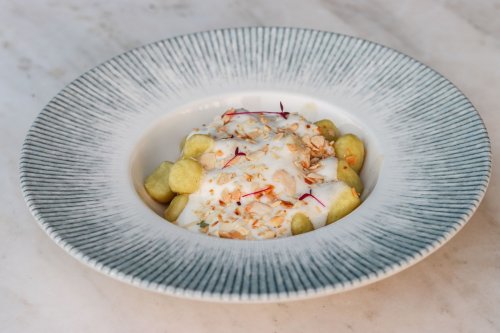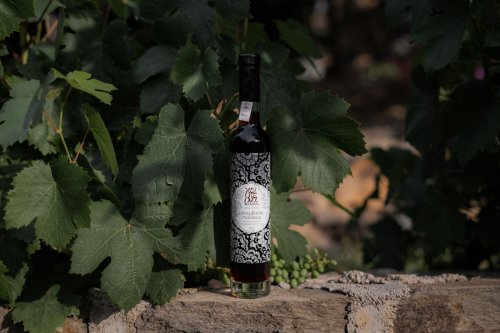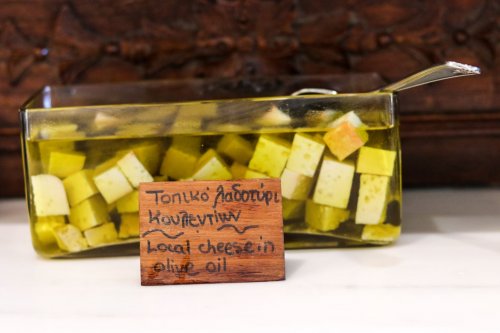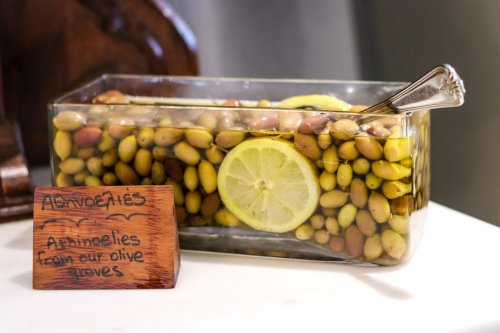Rare flavors of a unique place
Fine products, laborious producers and rare flavors
We stroll around the stone alleys of the castle town of Monemvasia and apart from its unique architecture and fascinating history we also admire its rich gastronomic tradition.
Fine products, laborious producers and rare flavors bring Monemvasia to the top of the Greek gastronomic destinations.
Breakfast with “tsaitia”

Hiking in the enchanting alleys of Monemvasia requires stamina and time. But we gain strength with a good breakfast of delicious tsaitia.
Tsaitia are thin, crispy pies filled with spinach, cauliflower, lettuce and herbs, often with a little grated feta or Sfela cheese, folded like an envelope and fried in hot local olive oil till they turn into a golden hue.
Delicious and crispy, we can find them in cafes and restaurants inside and outside the walls of Monemvasia and their tastiness and unique texture is the best way to start our tour in the famous castle town.
Short break for olive oil tasting
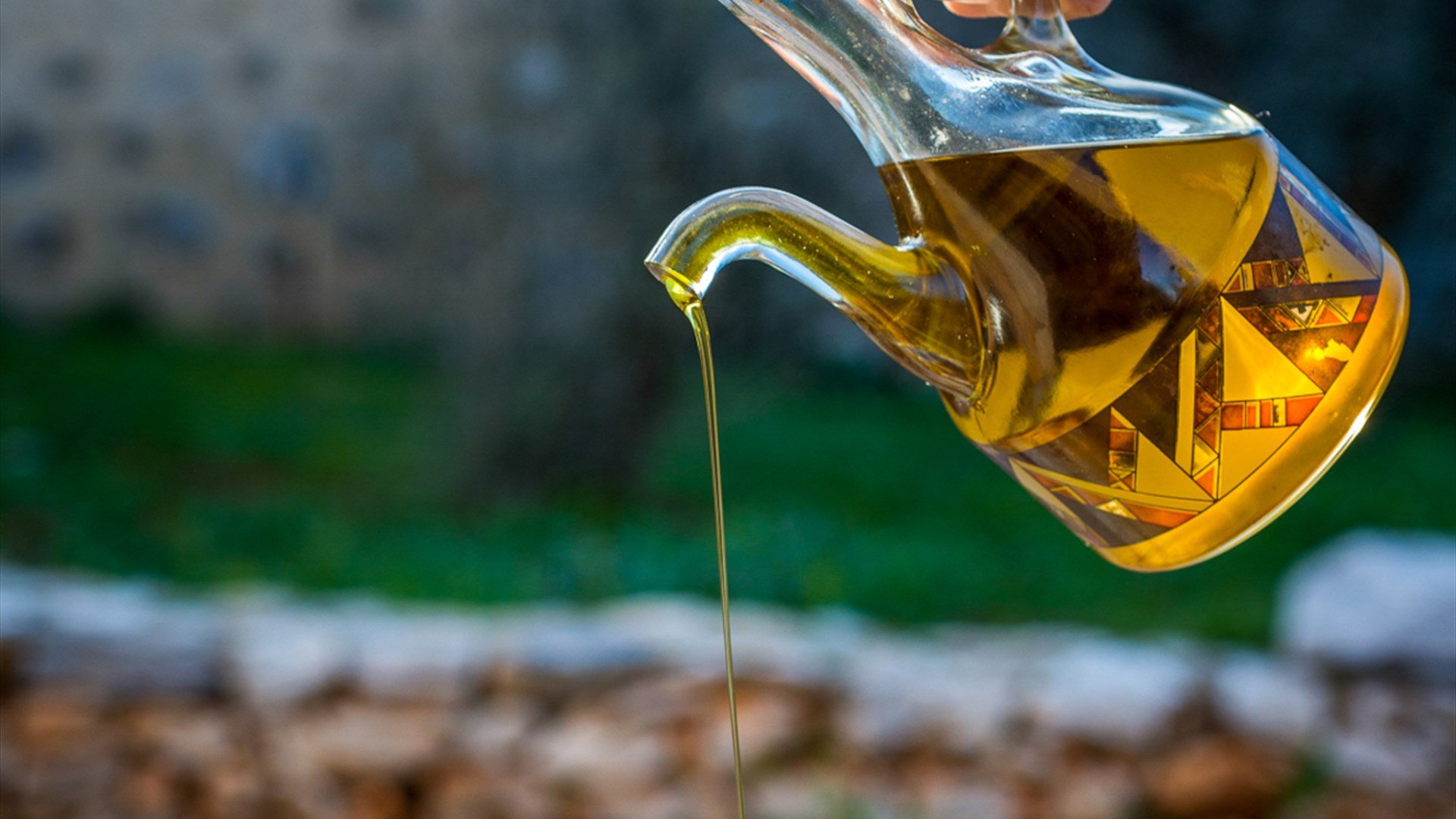
We are in Laconia and olive oil is an ancient and daily gastronomic habit. In Monemvasia, olive oil is inextricably linked to the history and gastronomic culture of the place.
Local farmers produce some of the best cold-pressed extra virgin olive oils in Greece, that are certified and, many of them, are organic, from the Koroneiki and Athinolia varieties.
Fruity, balanced and at the same time spicy with a delicious bitterness that connoisseurs love, Monemvasia's olive oils will be tasted at olive oil tastings, regularly organized by guesthouses and good grocery stores in the castle town.
Along with local yeast bread, it is the best brunch but also a tasting experience for every hour of the day. Local producers standardize these exquisite olive oils and we will buy them to take along in our luggage.
And of course we will accompany them with freshly baked bread, capers from the rocks of Monemvasia, lupine pickles from nearby Mani and local cheeses.
He followed a unique path 3 days and 3 nights in 3 magical hotels
Goges, the Monemvasian gnocchi
A stop for lunch at one of the many taverns and restaurants serving local cuisine. We won't just stick to the fresh aria and seafood, but we'll also try the handmade gog(l)es, an old traditional gnocchi-like pasta.
Chunky and simple, yet made with good flour from local mills, it is served with scalded fresh butter and toasted dry myzithra. Traditionally it is a dish that Monemvasian women prepare for the Carnival, but its deliciousness could not be limited to that time only so we enjoy it all year round, well made, incredibly fragrant and delicious.
Did Shakespeare drink Malvazia?

Indeed, in his play "Richard III" we read the phrase "drown me in a barrel of Malvasian wine", another reference to one of the most famous Greek wines that gained enormous popularity in Europe during the Middle Ages and the Renaissance, then known as Malvasian wine.
The production of this wine had been extinct for centuries, until 1997, when the Monemvasia Winery revived this rare variety, earning the well-deserved PDO Monemvasia-Malvasia certification. A wine with a floral character, a rich and velvety body and aromas of apricot, peach, pear and jasmine.
But Malvasia is not the only local wine variety. Monemvasia can boast about its special wines such as Kydonitsa, Thrapsa, Mavraki, Petroulianos, Glykerithra, Asprovaria. Wines identified with the rich wine tradition of the region, ideal to accompany the local dishes of Monemvasia's gastronomy.
10 absolutely Monemvasian experiences you must live Monemvasia is not just another destination it is an experience
Sfela, myzithra and feta cheese
A fertile and charmingly wild place, with plains and mountains, Monemvasia and its surrounding nature has been famous since ancient times for its cheese products.
The sheep and goats graze on lush hillsides full of rare herbs and spices, saturated by the saltiness of the sea, which gives them a special flavor and unique character.
Excellent choices are the dry myzithra, traditionally served scalded in hot fresh butter over pasta, the goat's milk graviera cheese which is buttery and fragrant, the goat's milk kefalotyri cheese and kefalograviera that are spicy and fragrant, the wonderful feta PDO of Monemvasia and the extra peppery and robust PDO Sfela, a cheese from Laconia made for pies, stews and local cuisine.
Many of these cheeses are matured in the lees of the Monemvasia wines and acquire strength, impressive aromas and a unique character.
Almond marzipans are a masterpiece!

It is impossible for a visitor to leave Monemvasia without trying (and putting in his luggage) its exquisite sweets. So stop for a coffee in one of the wonderful family-run confectioneries of the area, and start the sweet journey: first of all with the amazing and famous Monemvasian almond marzipans; delicate, fluffy, flooded with the characteristic aroma of the rose water from the flowers of the Laconian orange groves.
No one leaves Monemvasia without a box of almond marzipans from the small workshops and local house made industries of the area that produce excellent samples. And they are not the only ones!
We'll be taking along “samousades” which are small baklava-like rolls stuffed with walnut, plenty of sesame and almond, well-crafted honeyed “diples” that only the experience and the fine ingredients make them so delightfully crunchy and crispy, “rafioli” which are the Monemvasian almond marzipans wrapped in a delicate foil, lightly flavored with vanilla, and “melitinia”, which contain the fragrant Monemvasian honey.
Along with the sweets, you'll definitely get honey wine, also known as “hydromeli” mead, made with water and three kinds of honey that was once considered the wedding liqueur to make the newlyweds' life as sweet and delicate as the drink.
Kinsterna Hotel
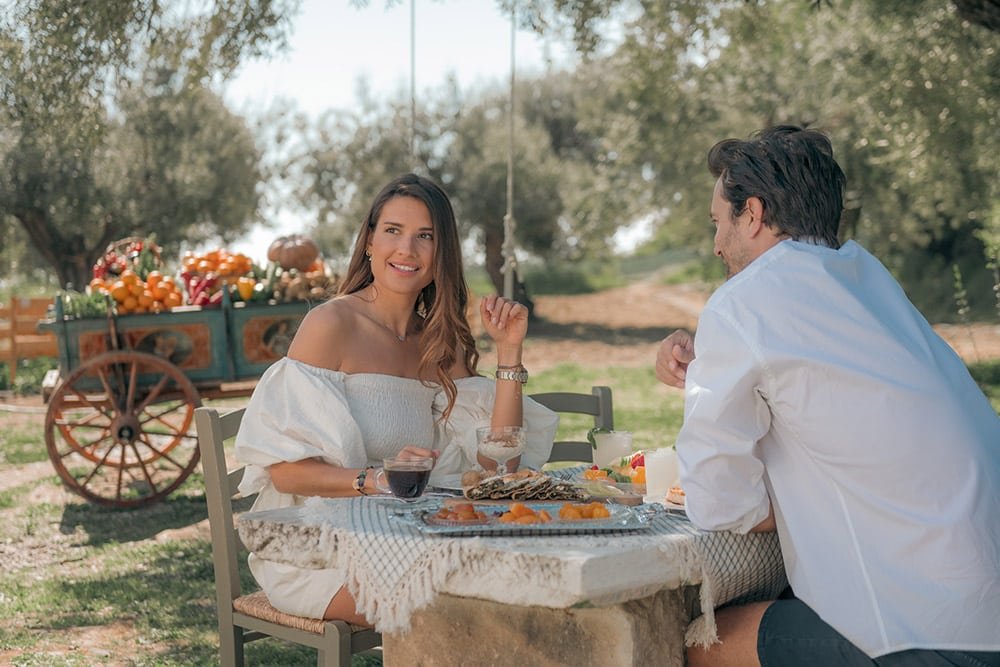
One of the most fascinating experiences that Kinsterna Hotel’s space encompasses is its history.
Touring the rooms and levels of the mansion brings us in touch with material remains of other times and stories that are moving.
Each time we share the little secrets of the mansion with you, we reveal all that makes this building unique, but also capable of housing special moments and giving birth to new stories.
The photos have been provided by Kinsterna Hotel to highlight the gastronomy of Monemvasia.
Laconia, culinary culture based on olive oil
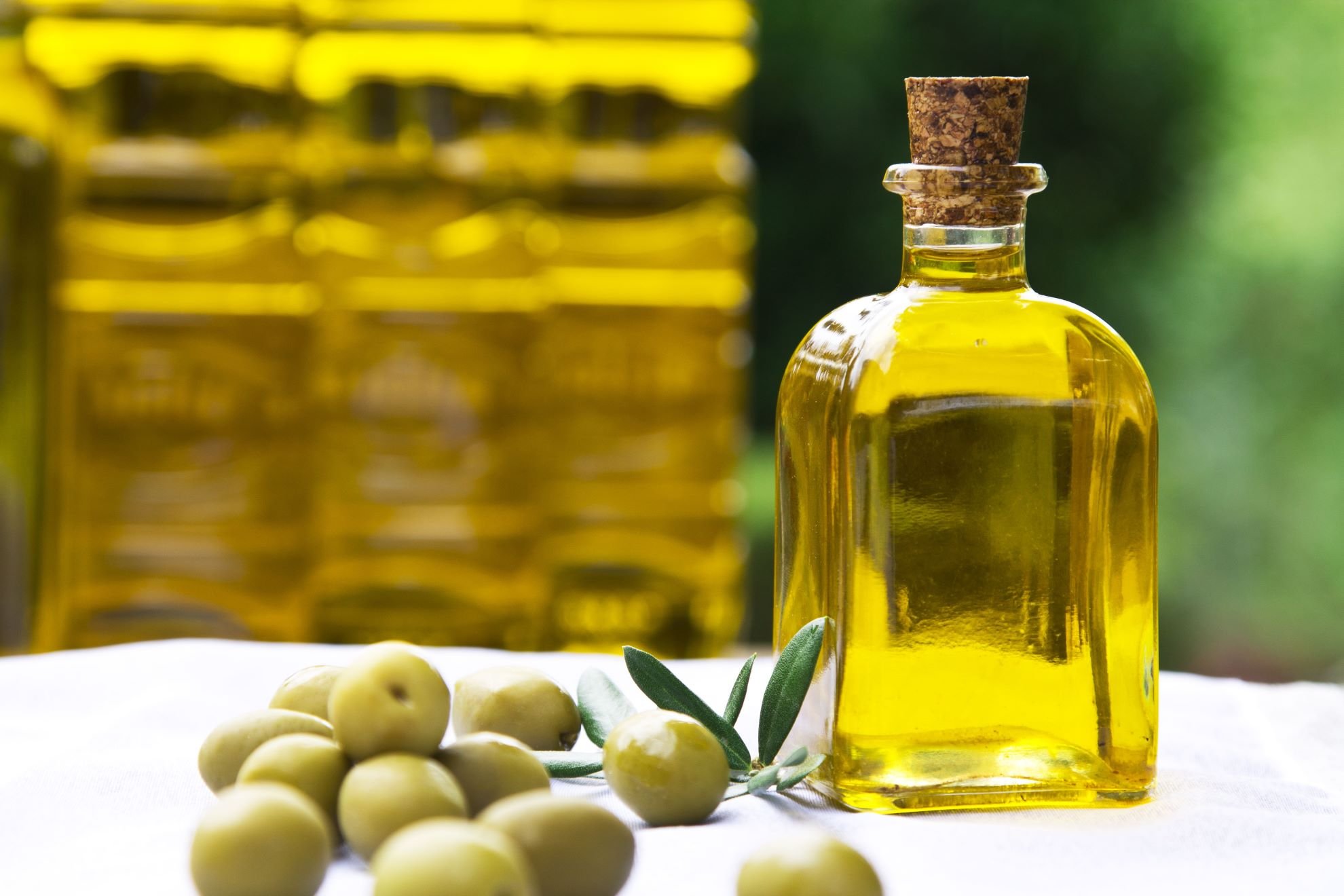
The laconic cuisine is based on the precious olive fruit, olive oil, and can boast of 4 PDO or PGI certified olive oils, all of them among the best in Greece. The oil is the basis for a multitude of her dishes

Gastronomy

